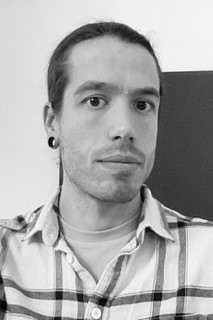
Postdoctoral Fellow, Dalhousie University – Halifax, Canada
Duration of stay: October 2025 to July 2026
In cooperation with Prof. Dr. Rainer Forst
Global Health Justice Postdoctoral Programme funded by Höppsche Stiftung gGmbH, Villmar
Derek Andrews recently completed his Ph.D. at Dalhousie University, in Halifax, Nova Scotia, Canada. His research interests lie at the intersection of metaphysics, ethics, and the philosophy of medicine/psychiatry. His dissertation, entitled, “Psychiatric Natural Kinds: Implications for Nosology, Practice, and Policymaking”, consists of a novel account of the metaphysics of mental disorders and a critical examination of the application of inductive inferences made on the basis of natural kind membership in health care policymaking.
Andrews’ current project aims to investigate the role of disease concepts in the formulation of health care policy and the injustices that may arise as a result of conflicts between disease concepts employed within and across institutional contexts. His research seeks to determine whether and to what extent these concepts align, in order to answer questions such as: In light of what narratives or norms are particular disease concepts employed? How does this vary across contexts and institutions? And how can this go wrong, what injustices does this create, and how ought these be addressed? Andrews contends that
resolving at least some issues of injustice in health care will require recognizing that there is no single concept of disease that can serve legitimate strategic aims across contexts, applying the concept of disease only in those contexts in which it serves legitimate strategic aims, and ensuring that the concept of disease employed in policy tracks the relevant legitimate strategic aims of stakeholders.
Research project: Disease Concepts, Institutional Norms, and Legitimate Strategic Goals: Tensions in the Formulation of Just (Mental) Health Policy
The concept of disease is foundational to questions of health and justice, as the distinction between what is and is not a disease – minimally, an appropriate target of medical intervention that entitles the bearer to certain kinds of care or accommodation – tracks what are and are not appropriate targets of health care-related policy. Furthermore, there may be conflicts in what is considered a disease across institutions, based on the implicit concept of disease employed in their policies. This problem is exacerbated by the lack of a single unified concept of disease upon which could be relied to address these issues. Debate on this topic is longstanding and has produced a range of proposals, but even the basic claim that having a disease is bad and harmful, with which these proposals generally agree, does not track across the full range of entities medicine is concerned with. It seems that whatever concept of disease we employ, we leave out conditions that should be treated as diseases, or gloss over important features of others, leaving their disease status unclear. This may introduce tensions between concepts of disease employed by different institutions, potentially resulting in the unjust treatment of individuals with these conditions.
In this project, I seek to investigate the intersection of institutional (moral, epistemic, etc.) norms, individual and institutional strategic goals, and disease concepts employed in the construction of health care policy. I do so with the aim of elucidating the relation between implicit norms in policy formation and the injustices that can arise as a result of conflicts between the norms implicit in the policies of different institutions involved in the provision of health care or related activities, such as health insurance companies or government disability benefit programs. As this project is designed to be completed within the ten month period of this postdoctoral fellowship, I will limit my analysis to the German context.
I contend that this project will reveal that resolving at least some issues of injustice in health care will require: (1) recognizing that there is no single concept of disease that can perform the work it is employed to do across contexts, and failing to do so may lead to injustices in health care access, provision, etc.; (2) applying the concept of disease only in those contexts in which it serves legitimate strategic aims; (3) assessing and identifying legitimate strategic aims, which may be context- and stakeholder-sensitive; and (4) ensuring that the concept of disease employed in policy tracks the relevant legitimate strategic aims of stakeholders, and that this is consistent across contexts and institutions whose aims justifiably align. Furthermore, I argue my proposed project will reveal that a broad, context-insensitive application of a single disease concept to different policymaking contexts is inappropriate, given differences between disease concepts, stakeholders, and legitimate aims across contexts.
-
Publikationen
Andrews, D. (2016). The gendered body and the medical-scientific gaze: Foucauldian theory and feminist epistemologies of neuroscience. Dialogue: Journal of Phi Sigma Tau International Honor Society for Philosophy, 58(2-3), 89-97.

